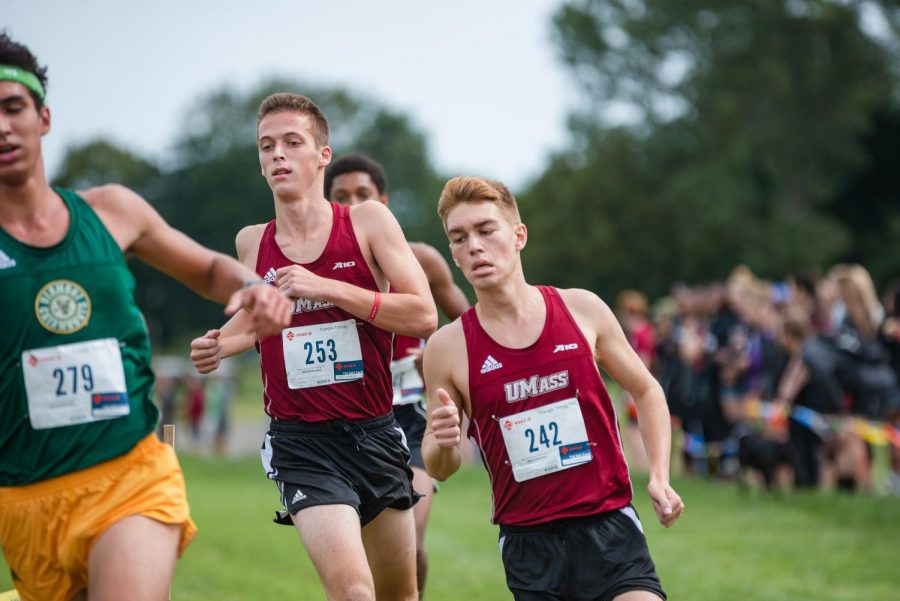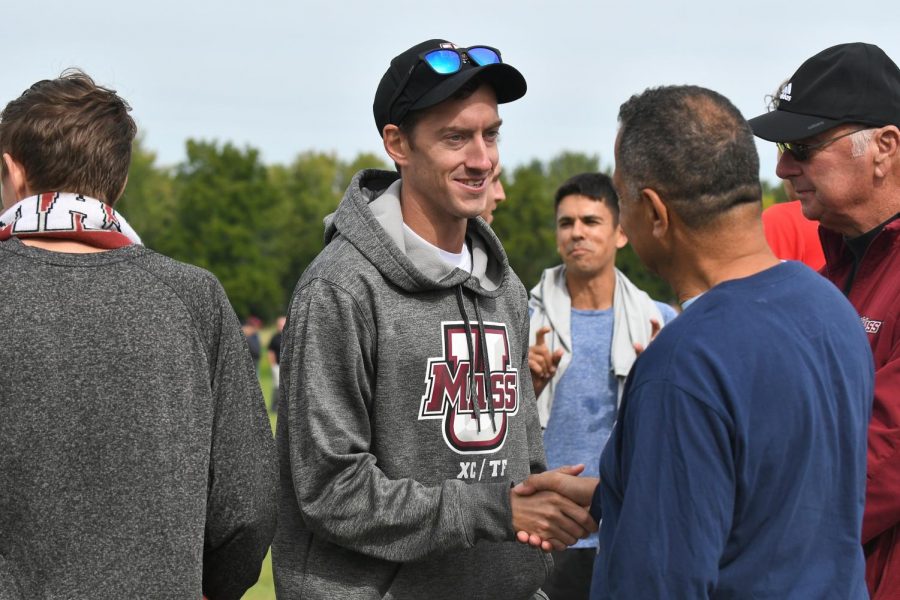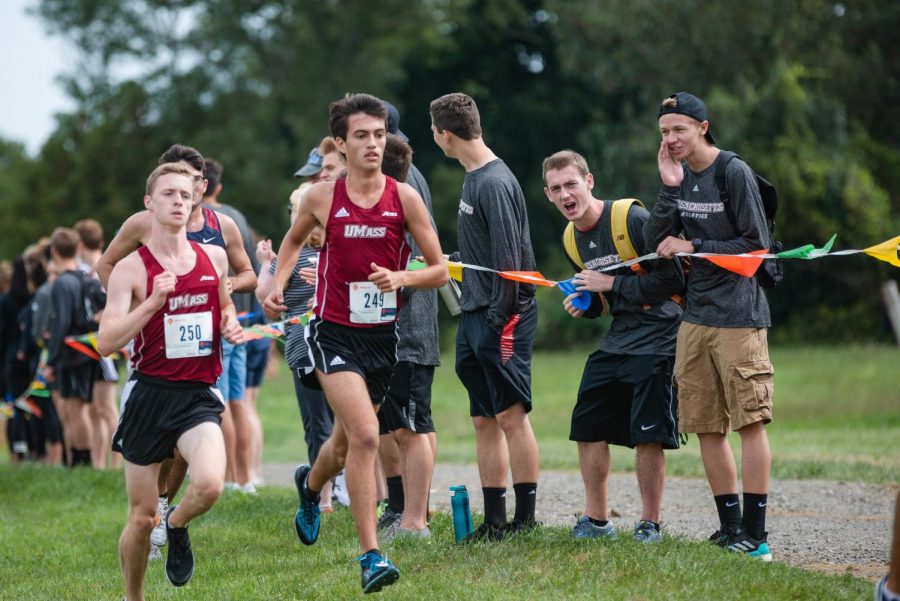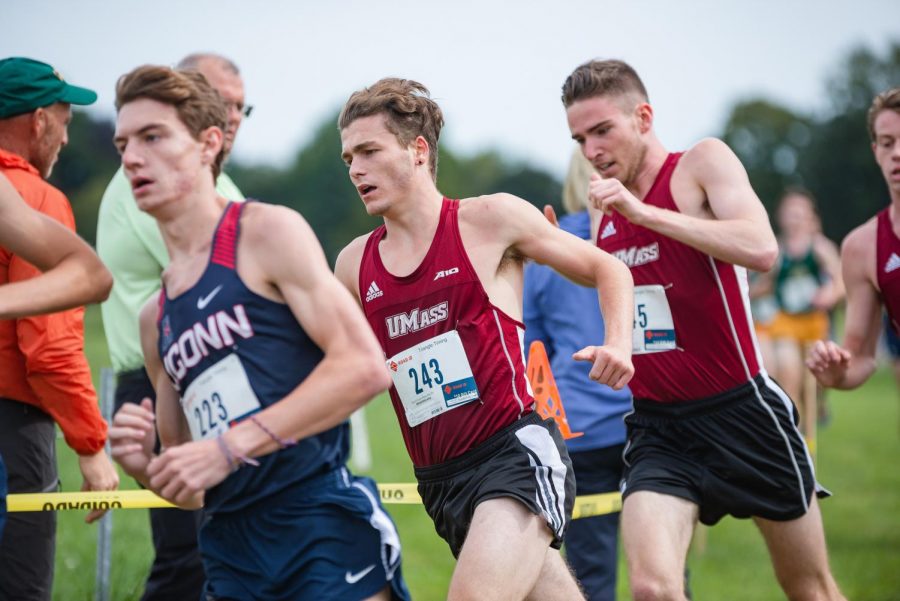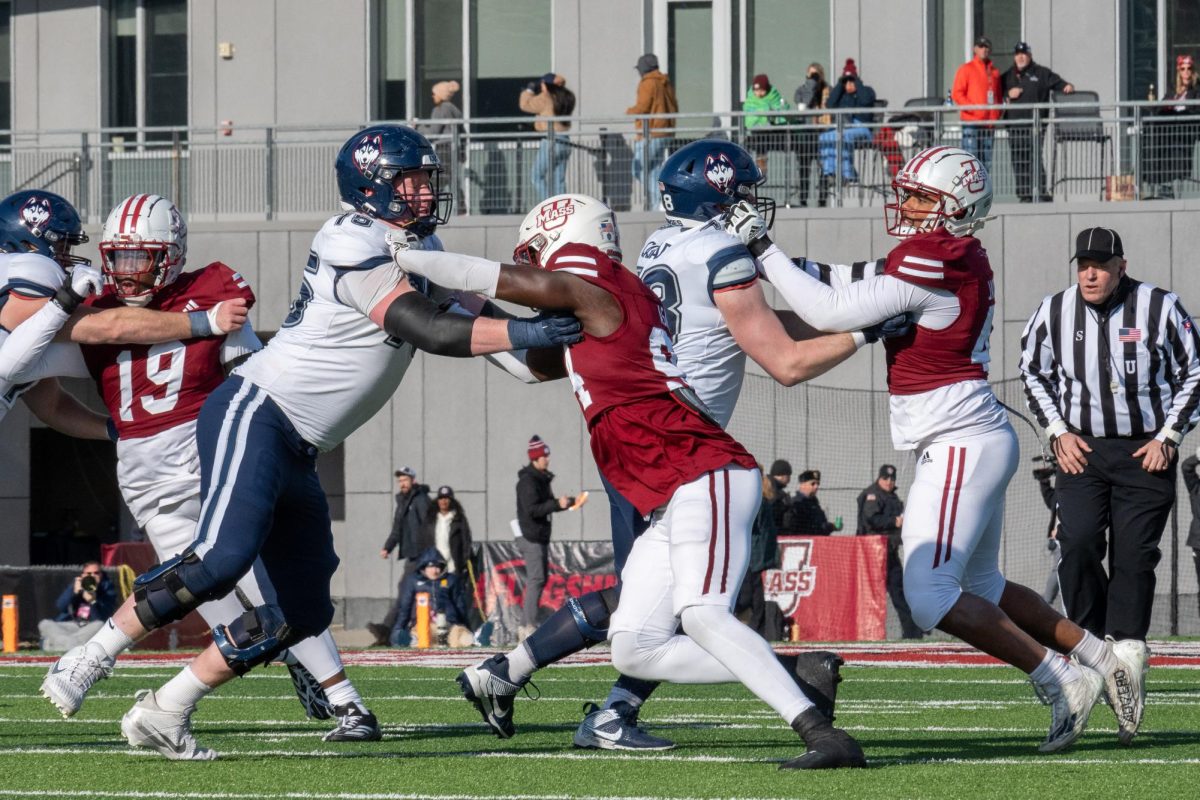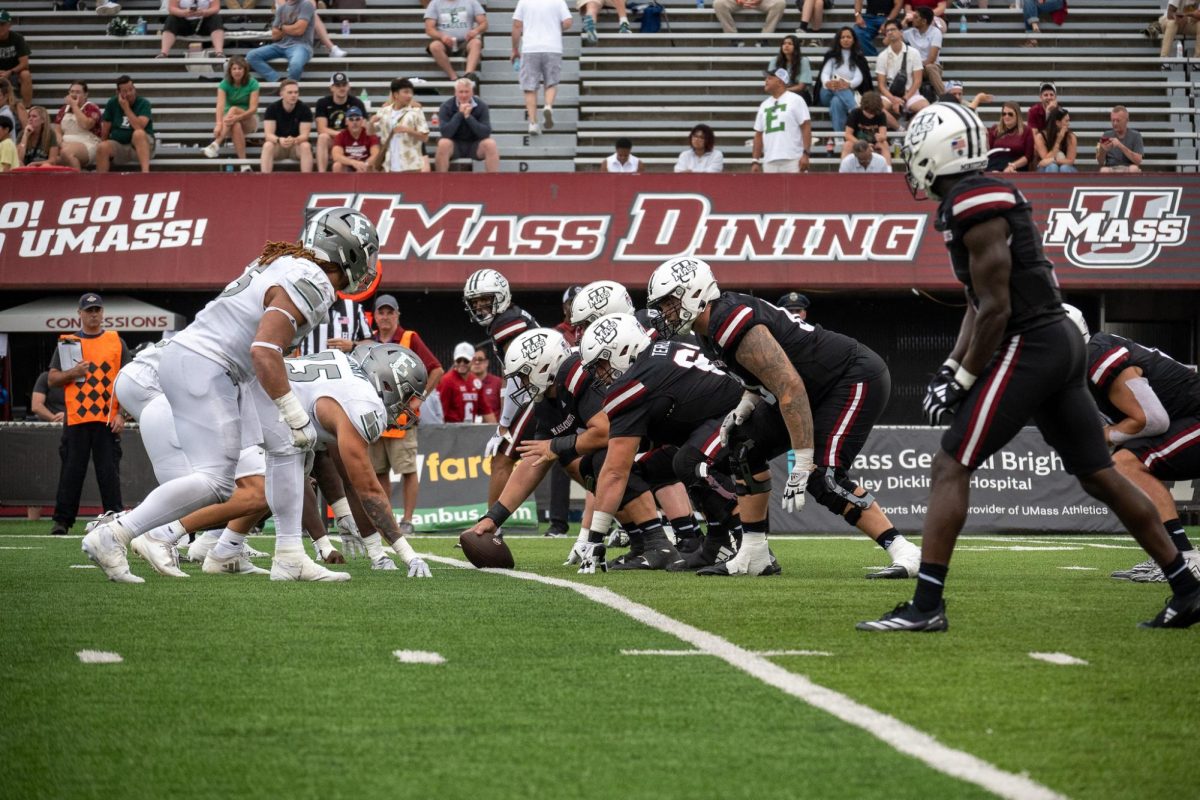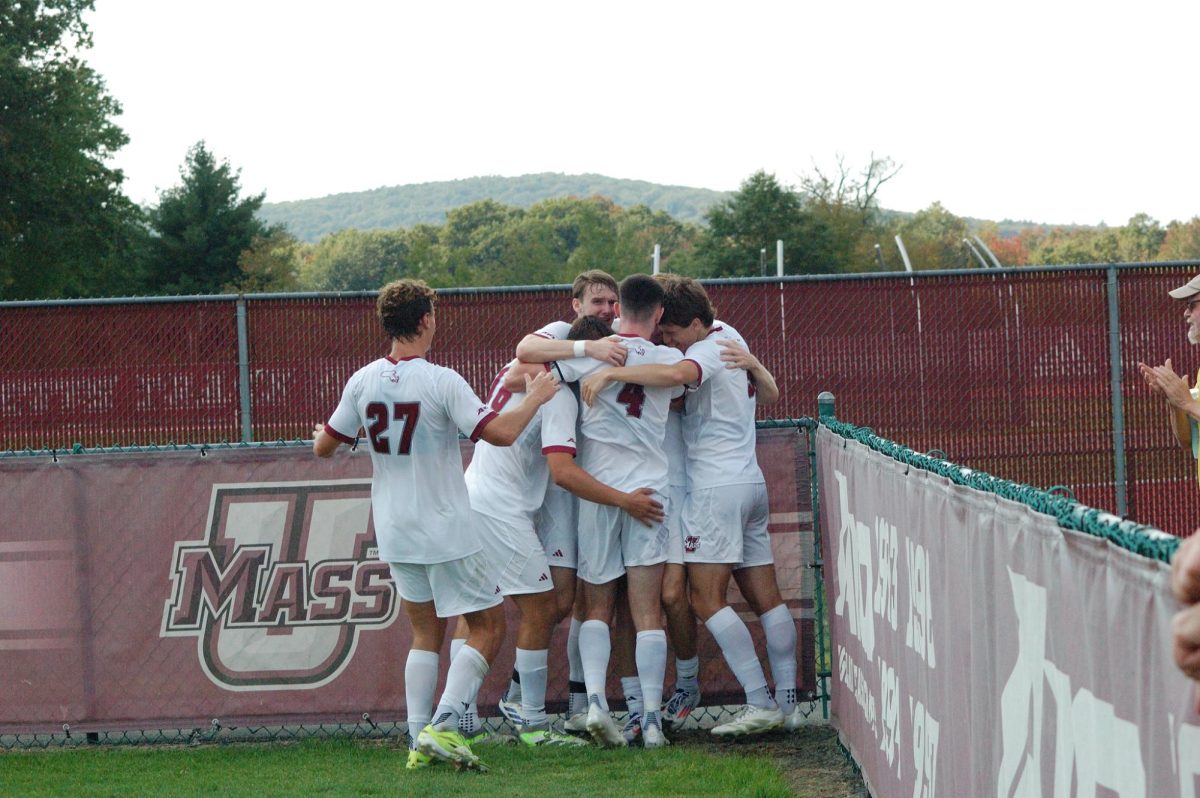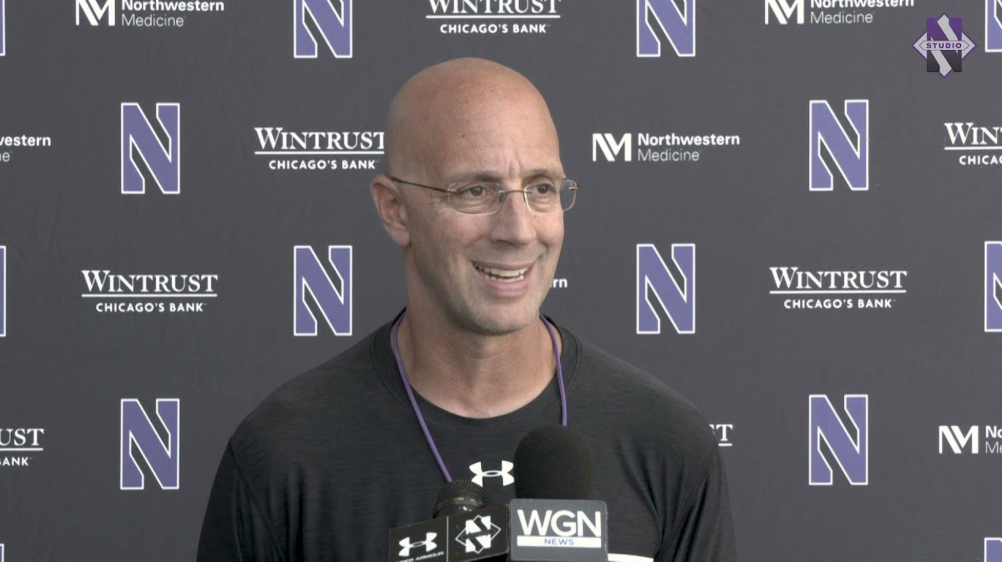
Shannon Broderick/Daily Collegian
Last week the Massachusetts men’s and women’s cross country teams finished fourth in their respective races. While on paper the results may not be stellar, both coaches and athletes appeared happy with how their teams ran last Saturday. What stood out for both the Minutemen and Minutewomen was the pack time of the top group of runners.
The men’s team’s first runner, Sam Conway, finished with a time of 19:51 and the sixth runner, Ben Thomas, finished at 20:32, separating the pack by 41 seconds. Coach Ken O’Brien expects the team to become faster as the season progresses, and was encouraged that the pack was as close as it was, especially considering that the finishing times were not indicative of how closely the team was grouped for most of the race.
“Rather than going out in front and hanging on, runners will go out conservatively and build their speed up throughout the race,” O’Brien explained. “Our team is tailored more towards strength with runners that do better with longer races, which is why we are focusing on the other six runners rather than the top guy.”
The women’s team had a similar result with their top five runners finishing within 42 seconds of each other: Alexa Livingstone at 18:39 and Dierdre Martyn at 19:21. The pack is expected to be even faster, as UMass ran without Heather MacLean and Natalie Mako, who were both held out of the first meet and will return this week for the Coast-to-Coast Battle in Beantown invitational at Franklin Park, in Boston.
Minutewomen coach Julie LaFreniere was just as adamant about pack running for her team as O’Brien was.
“We will not have the same number one runner from week to week, and our top ten will continue to interchange as well. I think it will help our runners race better,” she said.
The Vitality of Pack Running
In the sport of cross country, teams typically try to maximize scoring potential in one of two ways. Teams either have a couple of elite runners who can lead most races and provide low scoring finishes for their team, or teams will focus on pack running and try to lower the placement of the fourth through seventh runners.
It makes sense from a scoring standpoint since the lowest score wins in cross country. However, O’Brien highlighted the psychological effect of running with teammates in a race, an aspect he believes is often underplayed by coaches and runners alike in the sport. It can make up for a physical talent gap between a team and its competition, especially when they are an underdog on paper.
“If you’re out there by yourself in a high pressure race, in the rain, or the cold, or sleet, your mind will play tricks on you,” O’Brien said. “But if you see three or four of your teammates around you, you won’t want to be the person that breaks.”
The Minutemen and Minutewomen believe in the same mantra that’s being pushed by their coaches, and because both teams have been focusing on it throughout their training, the effects are starting to show. Seniors Ben Groleau and Carly Zinner – leaders on their respective teams – spoke of their goals in relation to pack running and why it was important to execute.
“I typically like to run a little more aggressively, but where I’m at in my training it just wasn’t in the cards, and we wanted to focus on the pack today and would’ve liked to have seen us keep together more towards the end, but it wasn’t that big of a deal,” Groleau said after he finished as the second runner for the UMass men last Saturday.
“Pack running can be a huge mental boost, because when you’re by yourself and you can’t see your teammates it’s really easy to loose motivation,” Zinner said after she too finished second for UMass in the women’s race.
The pack running strategy should provide a psychological backbone for both teams moving forward, and both packs will look to put up faster times this coming Saturday in Boston.
Nick Souza can be reached at [email protected]







